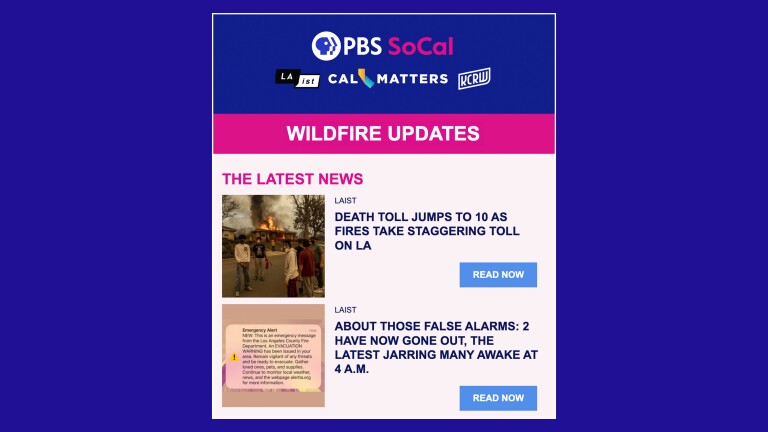Phase 2 of Wildfire Cleanup Starts This Week

This article was originally published Feb. 10, 2025 on laist.com.
Phase 2 of wildfire cleanup is starting this week in the Palisades and Eaton fire burn areas and will focus on the removal of damaged structures, trees and ash.
Phase 1, which has targeted hazardous material including solvents, pesticides, paint, propane tanks and lithium batteries, has been completed across 3,000 sites, according to Tara Fitzgerald, L.A. Wildfires Response Incident Commander with the U.S. Environmental Protection Agency.
More than 16,000 properties were damaged and destroyed in the January fires.

Debris that can be reused, including wood, metal and concrete, will be sent to recycling facilities. Ash will be sent directly to landfills. Six inches of topsoil will be removed in addition to the ash in an effort to mitigate contamination.
" We found over many fire responses that that is an acceptable level of debris to remove to ensure that we get any of the hazards that may have fallen on the top soil as a result of the fire," said Colonel Eric Swenson from the U.S. Army Corps of Engineers.
As wildfires impact our communities, your trusted public media organizations have come together to deliver free, reliable, and essential news and updates.

More than 1,300 personnel have been removing hazardous material by hand over the past several weeks.
Each item of concern is bagged on site or put into a drum and brought by truck to staging areas which are lined with three layers of plastic and surrounded on multiple sides by earthen berms and gravel.

"Those materials are offloaded off the trucks to a team that then receives them and puts them directly into their final packaging for transportation and disposal. So the material never touches the ground," said Fitzgerald.
Items like lithium batteries can often be recycled.
Soil samples were taken before the staging areas were built and will be repeated once they're dismantled to check for contamination. Ongoing air quality monitoring is occurring at each site as well.
Two new sites are being established at the Altadena Golf Course and Will Rogers State Beach, in part to meet the Phase 1 deadline of Feb. 28.
Officials are estimating that 4.5 million tons of debris could be processed during the cleanup operation.
Residents should expect increased truck traffic around burn areas as material is removed from sites.

